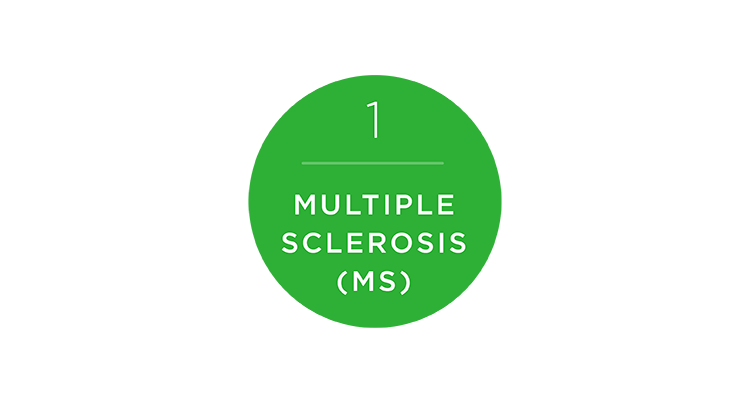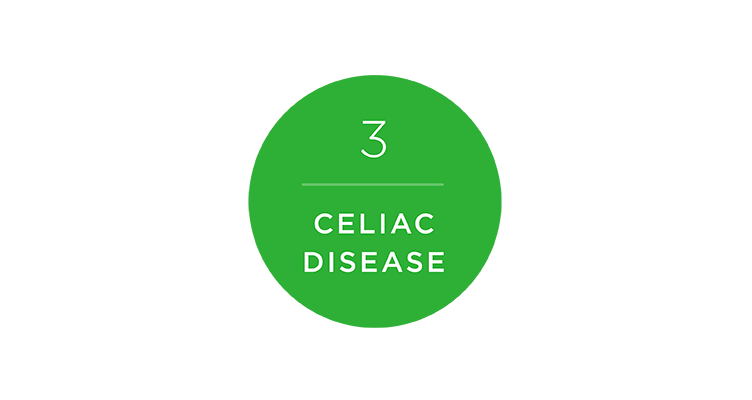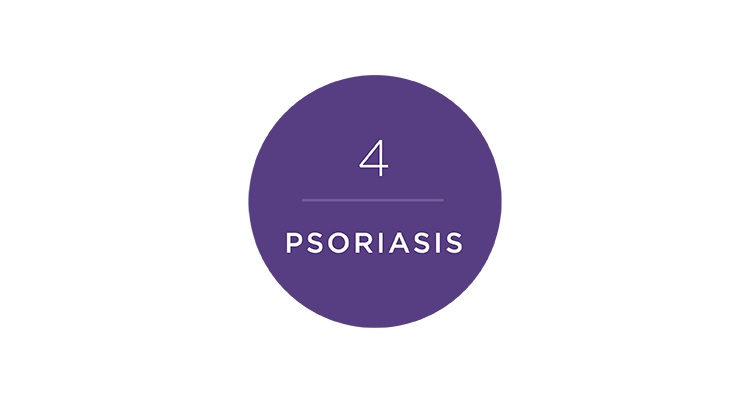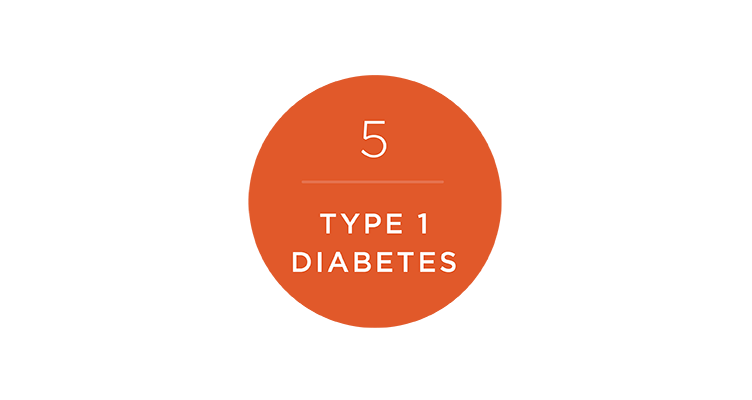What it is:
5 autoimmune diseases and how they’re linked to oral health
Your immune system usually protects your body by attacking unhealthy invading bacteria and viruses. But an autoimmune disease is a condition in which the body’s immune system attacks its own healthy cells. These diseases not only affect your overall health, they can take a toll on your oral health, too.
Here are five common autoimmune diseases and some tips for managing the oral health issues they can cause.
Multiple sclerosis, or MS, is a disease wherein the immune system attacks the layer that surrounds and protects the nerves of the brain and central nervous system. Messages traveling along the nerves become slowed or disrupted. Due to the nerve damage it causes, MS can be an extremely debilitating disease over time, affecting vision, sensation, coordination and movement.
How it affects oral health:
Depending on how the disease progresses, different areas of the body and nerves can be affected.
- You may develop temporomandibular (TMJ) problems due to the changes to the neuromuscular system of your head and neck.
- MS may cause numbness or tingling in your arms or hands, making it challenging to hold items like floss or a toothbrush.
What you can do to help protect your oral health
- Use a padded grip. Wrap foam around a toothbrush to help create a better grip for daily brushing. Most major online retailers sell special padding grips that can be used for toothbrushes, flosser picks, utensils and other implements.
- Wear a weighted glove. A weighted glove can help reduce trembling and steady hand movements while brushing.
- Try an electric toothbrush. Most electric toothbrushes have larger, wider handles than standard toothbrushes. If you have MS, you may find an electric toothbrush easier to manipulate.
- Ask your dentist about TMJ. Some studies have shown that treating TMJ may help improve other symptoms of MS, so be sure to share any symptoms with your dentist or physician. Your dentist may suggest treatments such as pain relievers, anti-inflammatories, oral splints, mouthguards or corticosteroid injections.
What it is:
Lupus causes the immune system to attack healthy tissue, which can cause damage to many different parts of the body. Signs and symptoms can include:
- Fatigue
- Fever
- Chest pain
- Skin rashes
- Sores on the roof of the mouth
- Joint pain
Symptoms vary among people and can be mild to severe, and there are often periods of illness, called flares, and periods of remission. Lupus is more common among women than men.
How it affects oral health:
- Salivary glands are often distressed by lupus, causing dry mouth.
- Medication used to treat lupus can also influence your oral health:
- White or red patches can appear in the mouth because of medication-induced thrush (a fungal infection).
- Medications that suppress the immune system can increase the risk of oral cancer.
What you can do to help protect your oral health
If you’ve been diagnosed with lupus, keep up with regular visits to your dentists. If you’re experiencing dry mouth, be sure to tell your dentist or physician. To help counteract dry mouth:
- Drink plenty of water.
- Rinse with water or fluoride mouthwash after eating.
- Avoid alcohol, caffeine, smoking and overly salty foods.
- Keep up with twice daily brushing and daily flossing.
What it is:
Celiac disease is an autoimmune disease primarily affecting the small intestine. Individuals with celiac disease develop an intolerance to gluten, which is found primarily in foods made with wheat, such as breads, pastries and pasta. Approximately 2 million Americans have celiac disease.
How it affects oral health:
- If you have celiac disease, your dentist may know before you do, just by looking at your enamel! Celiac disease affects the cells that form tooth enamel, so it’s not uncommon for teeth to become yellow, discolored or even appear translucent.
- Celiac disease can also cause other oral symptoms, including recurring canker sores, dry mouth, a red, smooth, shiny tongue and delayed tooth eruption for children with the condition.
What you can do to help protect your oral health
The only treatment for celiac disease is to stick to a gluten-free diet. Monitor your meals carefully, replacing foods with gluten (like traditional breads and pastas) with options made from gluten-free grains and other ingredients such as rice, corn, buckwheat, chickpea flour or millet.
What it is:
Psoriasis is an autoimmune disease that causes a rash with itchy, scaly patches. It primarily affects the skin, but it can also appear on other parts of the body and influence overall health.
How it influences oral health:
Although psoriasis primarily affects the skin, it can nonetheless take a toll on oral health:
- Rashes near the mouth. Psoriasis can result in dry, flaky patches around your lips that make brushing and flossing more difficult.
- Gum disease. If you have psoriasis, you may have a higher risk of developing gingivitis and gum disease.
- Oral psoriasis. Psoriasis inside the mouth is known as oral psoriasis. It’s very rare and can be hard to diagnose. It’s mostly found on the inside of the cheeks as inflamed red patches with either yellow or white edges. However, it can also appear as:
- Peeling skin on the gums
- Pain or burning while eating, especially with spicy food
- Blisters in the mouth
What you can do to help protect your oral health
Some simple remedies can help ease the irritation caused by oral psoriasis:
- Try rinsing your mouth with a mixture of lukewarm water and salt.
- Forgo spicy or acidic foods.
- If you smoke, quit.
If symptoms persist, your dentist or physician may be able to help by prescribing special mouth rinses, steroid creams for the sore areas of your mouth or oral medication for more severe symptoms.
What it is:
If you have Type 1 diabetes, your pancreas doesn’t make enough — or any — insulin. Insulin helps allow blood sugar to enter your cells, so without insulin, blood sugar builds up in the bloodstream.
How it influences oral health:
The higher the blood sugar levels, the higher the risk for:
- Cavities
- Early and advanced gum disease
- Dry mouth
What you can do to help protect your oral health
Managing blood sugar levels is key to managing type 1 diabetes. It’s also key to maintaining oral health with the condition. If you have type 1 diabetes:
- Keep careful track of your blood sugar levels
- Maintain a healthy weight
- Stick to a healthy diet
- Track your food, drink and physical activity
Protecting your oral health with an autoimmune disease
If you’ve been diagnosed with an autoimmune disease, be sure to let your dentist know about your condition. Your dentist can help you with a treatment plan that prioritizes your oral and overall health.
Keep up with twice-daily brushing and daily flossing and ask your dentist if you should consider additional dental care. Your dentist may recommend fluoride, more cleanings or other treatment.
What happens if my wisdom teeth never grow in?
Wisdom teeth removals are an informal rite of passage for teenagers and young adults, but did you know some people never grow wisdom teeth at all?
Keep your teeth clean and save money
Keeping your teeth clean doesn’t have to break the bank. Learn how to save money on important dental health items.
Getting your baby’s teeth checked
Learn how to prepare for your child’s first checkup at the dentist and what to expect.











